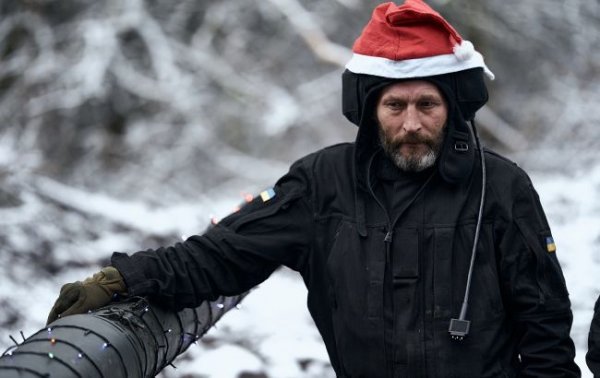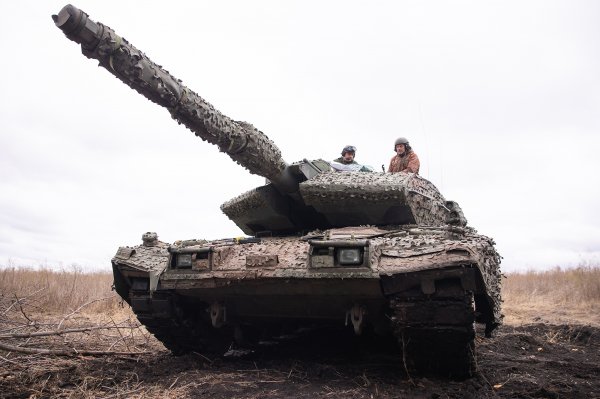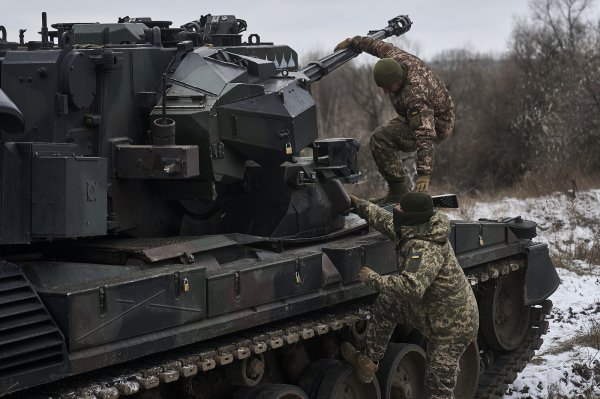
Ukrainians had high hopes for 2023 (photo: Getty Images) Author: RBC-Ukraine
Why 2023 passed on a wave of inflated expectations that the country was unable to realize, and how not to repeat the same mistake again – in the editorial column of RBC-Ukraine.
Ukrainians had high hopes for 2023. But it was neither a year of victory nor a year of great military success. Ukraine has failed to make meaningful progress on the battlefield. The counteroffensive, which had great expectations both in our country and in the West, ended with the liberation of a dozen villages. By the end of the year, the Russians completely intensified attacks along the entire front line and returned to massive rocket attacks on cities. Russia is hoarding resources and does not intend to retreat from its plans to seize Ukraine, returning the country under its control.
Uncertainty about military and financial assistance from partners for the 24th year, vague prospects for American support due to the presidential election (read – the Trump factor), as well as internal challenges associated with mobilization, increase fears of future events. Although a year ago the situation hardly looked better. The country was on the verge of a blackout, the pace and volume of arms supplies were depressing (no decision had yet been made on tanks or aircraft), and at the front the Russians were conducting “meat assaults” near Soledar and Bakhmut, getting close to these cities. But in my memory, however, there was still a fresh breakthrough of the Ukrainian Armed Forces in the Kharkov direction and the liberation of Kherson, which still left room for optimism.
Expectations of victory grew along with progress in the supply of weapons, strengthening of air defense and announcements of a major offensive. Politicians and top military officers, speaking about the coming offensive, dreamed of entering Crimea in the summer, walking along the Yalta embankment and the Ukrainian Armed Forces entering the 1991 borders almost this year. Successful attacks on the Crimean Bridge, drones in Moscow and missile attacks on targets deep in the Russian rear, as was the case with the headquarters of the Black Sea Fleet, looked very promising.
The Ukrainian politician, it seems, was imbued with expectations and believed in victory ahead of time. Big politics returned to the Pechersk Hills, and in some places carefree life returned to the rear cities. Home front news overshadowed front-line news, increasingly giving the military and volunteers a reason to talk about civilians’ indifference to the war. At moments we forgot who our true enemy was, directed aggression at each other and looked for strangers among our own. The rear, it seemed, was somewhere ready for compromises and did not understand the words of the military that the war would last for a long time.

Ukrainians' expectations of victory grew along with progress in arms supplies (photo: Getty Images)
Scandals with procurement for the army, top bribe-takers in the person of deputy ministers and the head of the Supreme Court finally heightened the degree of tension in society. There was a noticeable request for the fight against corruption and a fair approach in matters of mobilization, travel abroad, financial support for the military, etc. The answer to this request is one of the few that the government, in the absence of victories in the broad sense, could give quickly.
In return, the public was shown new paving stones in the center of Kyiv and purchases throughout the country that were far from military needs. Among the officials there were still those who wanted to give/receive a bribe, fly on vacation to the Maldives or buy a new luxury car. Against this background, parties in the capital during curfew with the obvious connivance of the police, daily news about draft dodgers whom officials brought into the “Shlyakh” system for money, and corruption in the VLK were hardly surprising.
The war, as it might seem, began to fade into the background. For some time, the authorities even seriously considered the idea of holding presidential elections. Details of possible disagreements between Vladimir Zelensky and Commander-in-Chief Valery Zaluzhny, who, according to the power elites, having a high level of support, allegedly would not mind finding himself in politics, began to emerge. From time to time, rumors about the resignation of the government were started – political players both in power and in the opposition were eyeing the prime minister's chair.
But the war forced the rear to shift attention to the battlefield. The situation there turned out to be far from what was described in the announcements of the offensive. Added to the problem with shells was the lack of human resources – it became increasingly difficult for the military to staff brigades; there was simply no one to replace the wounded and frontline fighters with. At the end of the second year of a full-scale war, there are no longer queues at military registration and enlistment offices; the trend here has, rather, the opposite effect. The TCC (former military registration and enlistment offices) are not coping with the mobilization plan, which ties the hands of the military according to their plans. At the same time, social networks are filled with videos about the forceful delivery of summonses, beatings of civilians by people in military uniform and other episodes that clearly do not motivate people to serve in the army. The simple decision to fire all the “old” military commissars apparently turned out to be not as effective as it might seem at first glance.
The government and military, likely at odds over approaches to mobilizing and using recruits on the battlefield, brought the issue to the public. President Zelensky announced a request from the General Staff for 500 thousand new soldiers, and Commander-in-Chief Zaluzhny literally denied this request literally a few days later. In the confusion and shuffling between Bankova and the General Staff, at the end of the year, a scandalous government bill on mobilization appeared with a number of very controversial provisions, which was immediately criticized in the Rada and promised some kind of alternative. But in fact, society did not receive any clear answers, except that mobilization would still need to be carried out.

In 2023, Ukrainians faced the question of changes in mobilization (photo: Getty Images)
The reality so far is that neither politicians nor the military, despite the difficult situation at the front, are ready to publicly communicate the tough measures necessary to ensure the country’s defense capability. Taking responsibility in difficult times is an extremely unpopular thing for Ukrainian politics. And, wasting precious time, everyone avoids difficult decisions, which, however, society may not accept, given the list of requests for justice and equal treatment of everyone that have not been addressed by the authorities.
No one knows whether the war will end in 2024, as President Zelensky also said. But the year 2024 definitely brings many uncomfortable questions to Ukraine, the answers to which may literally determine the survival of the state and nation. Are we willing to sacrifice some civil rights and liberties to win the war? Will politicians stop being populists and will they be able to make difficult decisions without shifting responsibility for them to others? Do we have people who will mobilize and give a break to the military, who have been holding the front for two years now? Will we as a society accept war-torn young people, will they receive the necessary treatment, psychological assistance and a chance for a decent life? Will Ukrainians continue to be an example for the world, as a nation that does not give up and fights for its future?
In the coming weeks and months, the answers to these and other questions could determine the future of Ukraine and greatly influence the course of the war. In the search for the right solutions, you can blame stealing officials for our problems, blame men who fled abroad for cowardice, and blame indecisive Western partners for our problems. But the main thing is not to forget who our real enemy is and what his victory threatens the whole country with.
The latest shelling on the eve of the New Year with dozens of civilian casualties showed that the Russians are not abandoning their plans and are not interested in any peace negotiations. Only the arrival of war on their territory can make the aggressor think about the risks for his regime. When alarm signals sound in Russian cities, which have been keeping our country in suspense for almost two years.
And among the Ukrainians there are those who, for example, after the shelling of Belgorod publicly regretted the casualties among Russian civilians. But even for these deaths in the Russian Federation they can only blame themselves and the Kremlin elite, which the population allows to do evil with impunity, killing thousands and thousands of people in a country foreign to them, Ukraine.
After the reaction of the UN and other “peacekeepers” who condemned the death of civilians in the Russian Federation, we can only repeat again that in the matter of our survival and defense of the country we can only count on ourselves. Not even the closest partners in the West feel even a fraction of the pain and suffering that befell the Ukrainians.
They say that treating a serious illness begins with accepting the diagnosis. It seems that it is time for Ukrainian society to stop arguing about the causes of the disease and begin active therapy for a speedy recovery. No one will do this for you and me.
